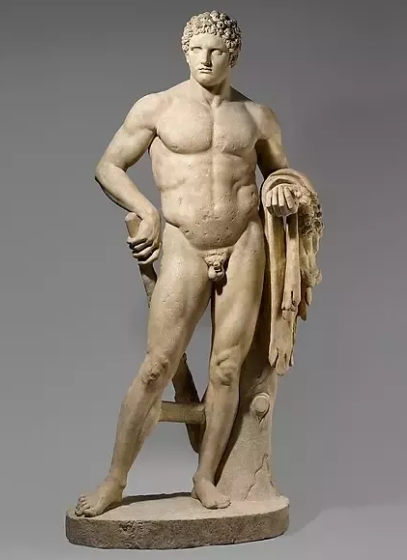Greek sculpture is a milestone in the history of Western art, known for its exquisite craftsmanship and profound cultural influence. When discussing Greek statuary, we are not only admiring those ancient stone and bronze works, but also looking back at how an ancient civilization expressed human ideals and emotions through art.
The development of Greek sculpture can be divided into several important stages, from early anthropomorphic figures to more naturalistic expressions, each stage reflecting the changes in Greek society and the development of philosophy. The charm of Greek sculpture lies in its pursuit of perfect proportions and idealized human images, which is particularly evident in Muscular Greek Sculpture. This type of sculpture often shows the strong physique and dynamic posture of male heroes, such as mythological characters such as Hercules and Apollo. Their muscular lines are detailed and full of power, reflecting the Greeks’ worship and pursuit of human beauty.
These sculptures are not just works of art, they also carry the function of educating and conveying social values. In ancient Greece, public places were often filled with statues, which were not only used to decorate the environment, but also to inspire citizens and remind them to emulate the virtues and strength of these idealized heroes.
The influence of Greek sculpture is extremely far-reaching, and its style and techniques have had a lasting impact on later artists. From the Renaissance to modern sculpture, Greek sculpture concepts have always been the object of study and imitation. This people-oriented artistic expression makes greek statuary an important window for studying human beings themselves and their culture.
In summary, greek statuary is a precious treasure in the history of human art. They not only show the ancient Greeks’ pursuit of beauty, but also a profound exploration of human image and spiritual ideals. Whether it is the majestic temple sculptures or the delicate Muscular Greek Sculpture, these works make us deeply feel the unique charm and eternal value of ancient Greek culture.

